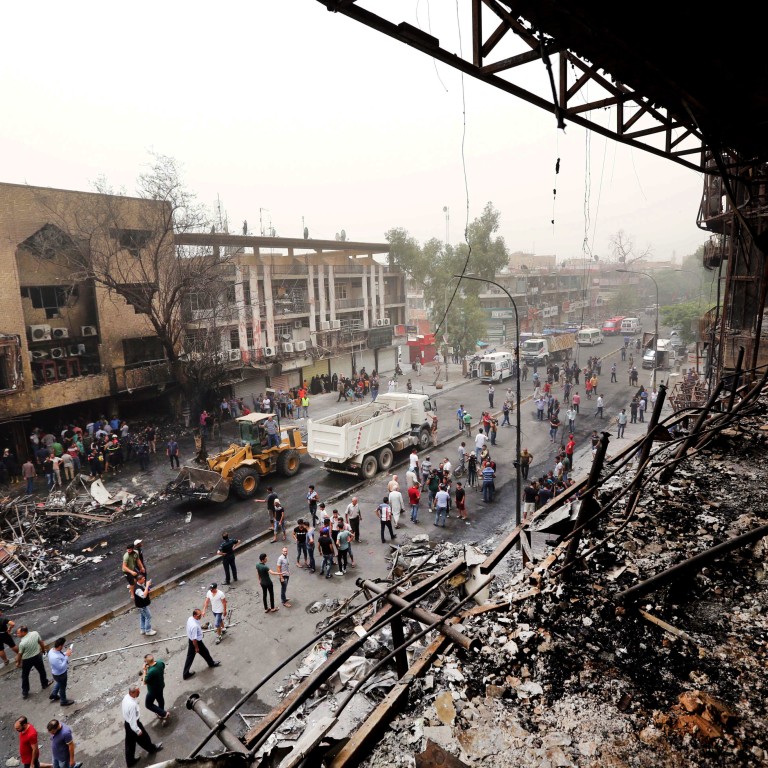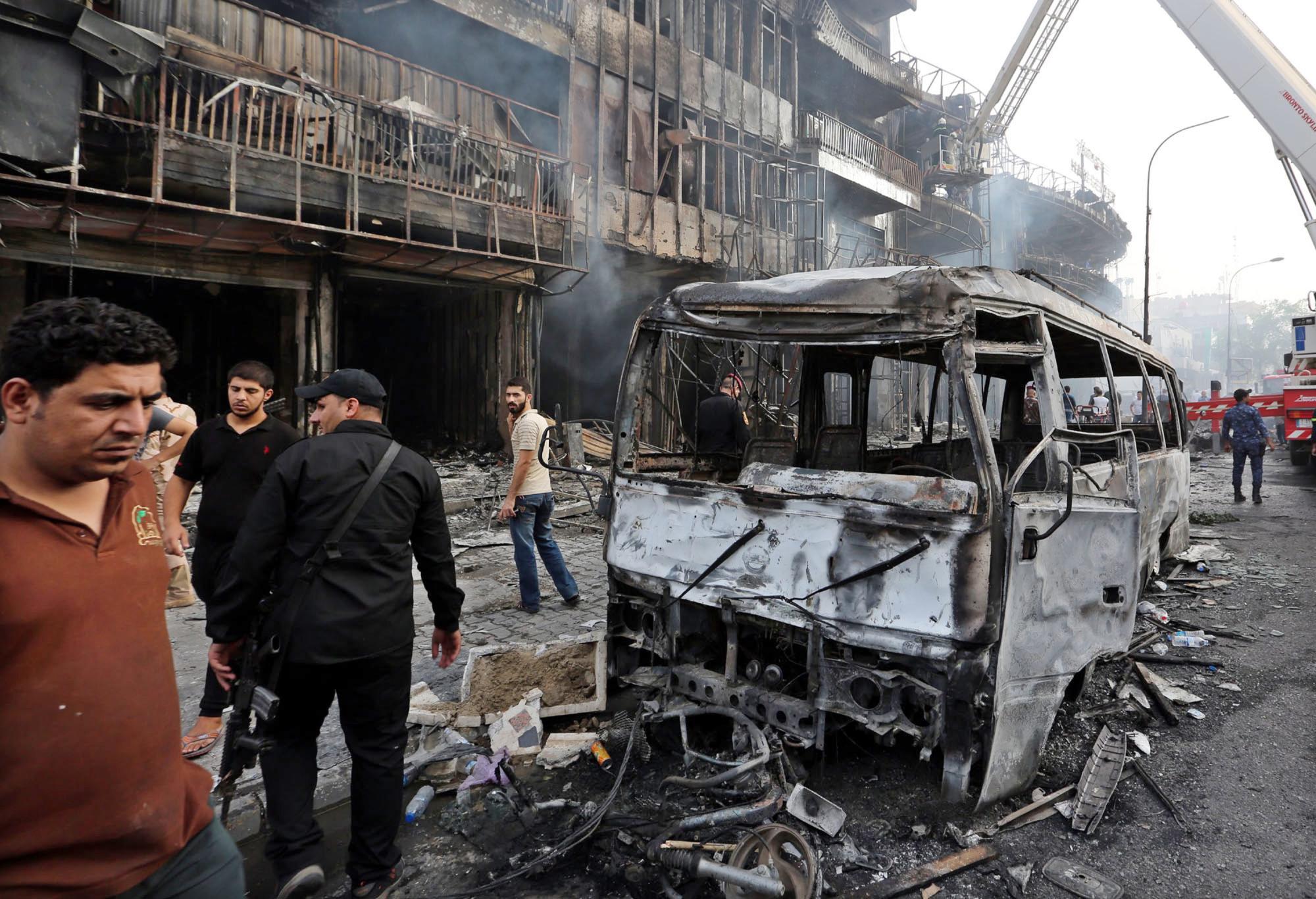
Iraq hangs 3 for Isis-claimed Baghdad bombing that killed hundreds in 2016
- The bombing in a Baghdad shopping district killed more than 320 people and was one of the world’s deadliest attacks after September 11
- Iraq did not name those executed or say when they were sentenced. It said the executions were carried out on Sunday night and Monday morning
Prime Minister Mohammed Shia al-Sudani, during a meeting with victims’ families, informed them “the rightful punishment of death sentence was carried out against three key criminals found guilty of their involvement in the terrorist bombing,” his office said in a statement.

Police Major General Talib Khalil Rahi said at the time that the bomber’s minibus had been loaded with plastic explosives and ammonium nitrate.
The initial explosion killed a limited number of people, but flames spread and trapped people inside shopping centres which lacked emergency exits, Rahi told a news conference a few days later.
The raging fires made it difficult to identify the dead.
Interior Minister Mohammed Ghabban resigned in the wake of the blast.
IS had overrun large areas north and west of Baghdad in 2014, but by the time of the Karrada blast Iraqi forces had regained significant territory from the jihadists, who hit back against civilians in response.
Iraq seeks Interpol alerts for former officials over US$2.5 billion tax theft
Iraq’s government declared victory against Isis in late 2017 after a military campaign backed by a United States-led military coalition.
In October 2021 Iraq announced the arrest outside the country of the person it said was the main suspect behind the Karrada blast. Then-prime minister Mustafa al-Kadhemi said Ghazwan Alzawbaee was “the primary culprit” in that attack “and many others”.
A government source told Agence France-Presse that Alzawbaee was among those put to death.
The statement from Sudani’s office, however, did not name those executed or say when they were sentenced. It said the executions were carried out on Sunday night and Monday morning.
Protesters storm Baghdad’s Green Zone over burning of Koran and Iraqi flag in Denmark
Isis cells continue to target security forces and civilians in both countries but the UN report said Isis had been much depleted by “sustained counterterrorism operations” on both sides of the border.
Over several years, Iraqi courts have handed down hundreds of death sentences as well as life prison terms under the penal code for membership in “a terrorist group”.
Iraqi courts also issue the death penalty for murder.
In 2022 Iraq executed more than 11 people, fewer than in the United States, and sentenced more than 41 to death, according to a report by Amnesty International.

.png?itok=arIb17P0)